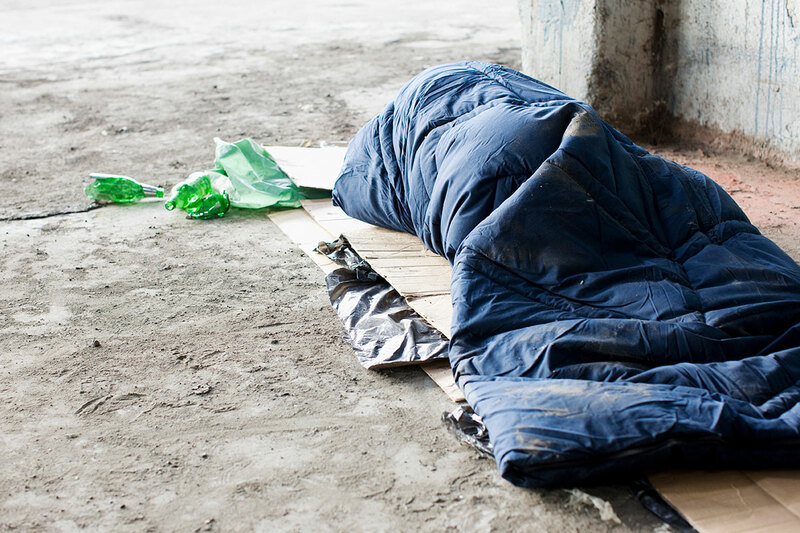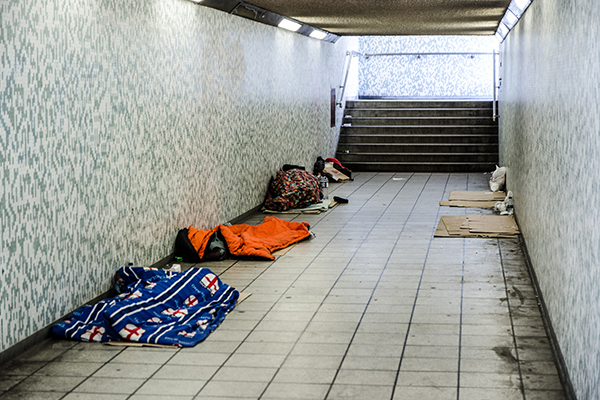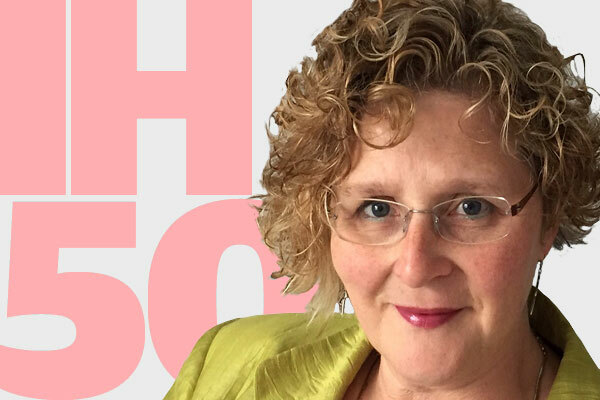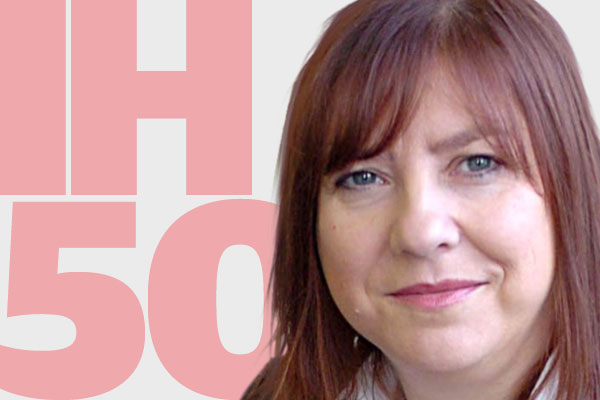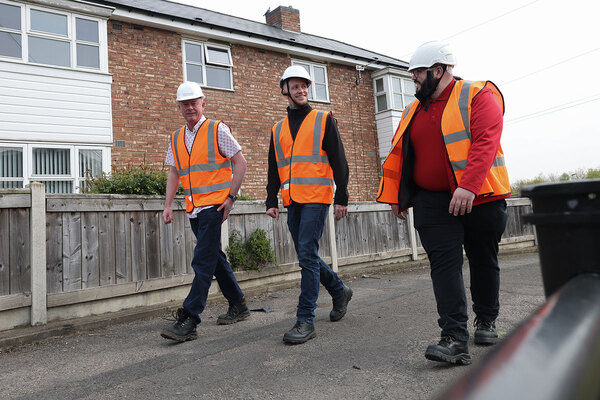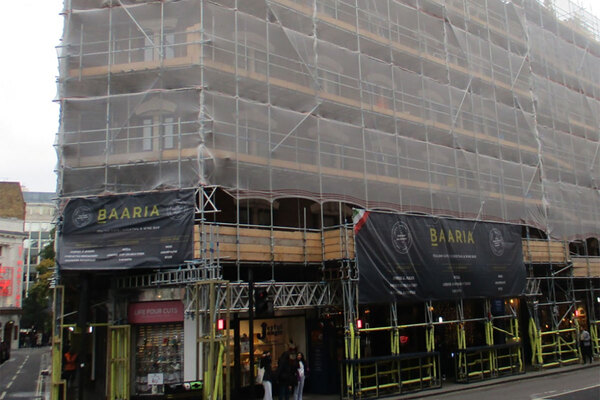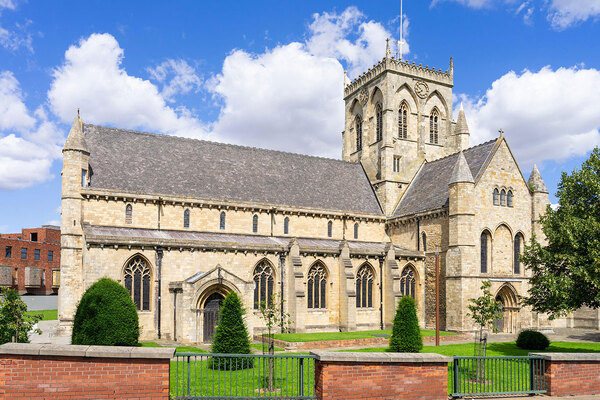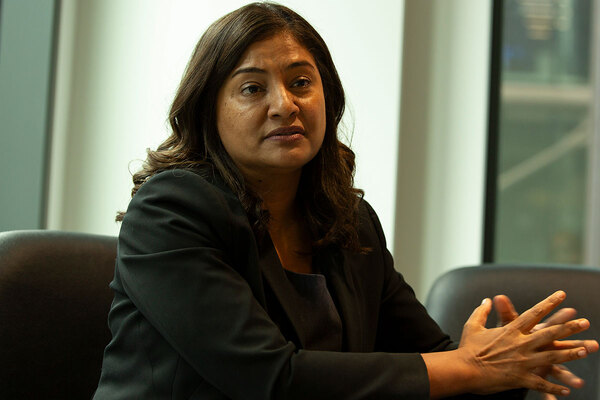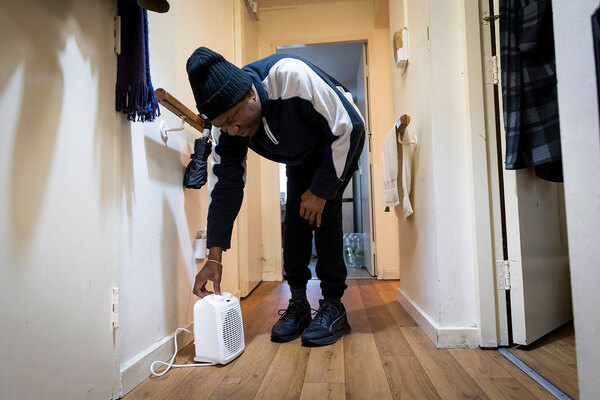You are viewing 1 of your 1 free articles
Johnson promises to ‘expand’ homelessness programmes
Boris Johnson has promised to “expand” homelessness programmes as the government strives to hit its ambitious target of ending rough sleeping by 2024.
The prime minister announced the allocation of £263m in homelessness funding over the Christmas period, with £200m from the Flexible Homelessness Support Grant launched in 2017.
Another £63m is the latest tranche of Homelessness Reduction Grant funding, put in place to help councils meet new duties under the Homelessness Reduction Act.
Ministers said 317 councils across England would receive money for homelessness services. Newham, east London, has received the largest allocation of £10,787,060.
The Conservatives’ general election manifesto moved the party’s pledge to end rough sleeping forward by three years without specifying any extra measures to meet the target.
Speaking at a rough sleeping shelter in London, Mr Johnson said: “It cannot be right in the 21st century that people are homeless or having to sleep on our streets, and this government will work tirelessly to bring this to an end.
“This new funding is going to help councils provide better support to homeless people and, importantly, prevent people from becoming homeless in the first place.
“But we have got to do even more, and we’re committed to expanding rough sleeping and homelessness programmes and ensuring more integrated working between our local health and housing services.”
Official figures released last month showed there has been an 11.4% rise in the number of households either homeless or threatened with homelessness over the past year, while the number of people in temporary accommodation is at its highest in more than a decade.
Mr Johnson also said that the Cold Weather Fund, aimed at supporting rough sleepers during the winter, will be increased by £3m to £13m.
The government’s homelessness programmes are worth £1.2bn in total.
Housing secretary Robert Jenrick said: “Last year the number of people sleeping rough fell for the first time in several years, and while the government’s interventions are working, there is a great deal more work to do.
“We’re committed to eliminating rough sleeping by the end of the parliament.”
Single night snapshot figures published by the government in February showed that the number of people rough sleeping fell by 2% last year, having surged 165% since 2010.
The government also said that its £28m Housing First pilots in Greater Manchester, Liverpool and the West Midlands have helped 200 rough sleepers into homes to date.
Housing First is an approach to reducing rough sleeping which sees people moved into safe and secure housing in the first instance and then given intensive support to recover from issues, such as substance addiction or ill health, until they can move into a permanent home.
